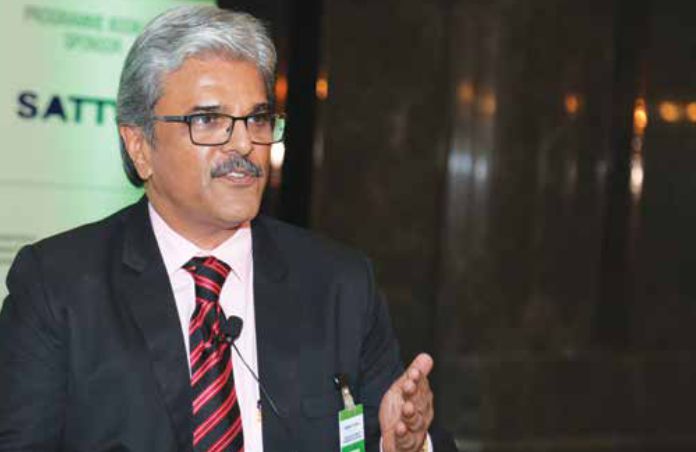[vc_row][vc_column][vc_column_text]
While the entire industry is passing through turmoil, the 23rd Biennial Convention being organised in Kochi will search for innovative ways on how to sail through difficult times
What are the key points that will be discussed at the 23rd biennial convention of FFFAI?
The convention will discuss how to adapt with implementation of GST, future of logistics services (going digital and cashless), assuring gender equalisation in logistics, future of Customs clearance, surviving the downturn and innovative ways about how to sail through the difficult times.
What role can FFFAI play to ensure India has a better ranking in ease of doing business across borders?
FFFAI members facilitate ease of doing business with special emphasis on “speed of doing business”. As service providers for clearances of shipments, transportation and other logistics operations we play the pivotal role in fast and hassle-free movement/ clearance of a shipment.
What are the issues the government should first focus upon for reducing the dwell time at ports?
The root cause of more dwell time have to be identified and ironed out. The recent notification from the Ministry of Civil Aviation regarding reduction in free dwell time has been very pragmatic. It says the recording the dwell time should be started from the moment the shipment gets registered at Customs ICEGATE. Higher dwell time depends on various factors, especially the cargo handling/ Ensuring “Speed of doing business” holding procedures at each and every stage of operation for both air and sea cargo. Accordingly, all the stakeholders have to take collective responsibilities to reduce dwell time.
From December 1, 2016 onwards the Central Board of Excise and Customs will go paperless to help exporters and importers.
What will be the benefit to the EXIM community in terms of time and cost savings?
Definitely the ‘Paperless’ initiatives would reduce both transaction cost and time. The CBEC circular says, effective December 1, 2016 importers and exporters will not be required to submit paper documents such as GAR 7 forms / TR 6 Challans, Transshipment Permit (TP), Shipping Bill (Exchange Control copy and Export Promotion copy) & Bill of Entry (Exchange Control Copy) to Banks/ DGFT / Customs Ports.
It has also been stated that as 95 per cent of the importers are now paying duty through e-payment and these documents can be viewed on the ICEGATE e-payment Gateway, the need for print-out of GAR 7 Forms / TR6 Challans is not required.
CBEC provides copies of the digitally signed Shipping Bill to DGFT and also the data of Shipping Bill is integrated with the EDPMS (Export Data Processing and Monitoring System) of RBI. Therefore, printing of the Exchange Control copy and Export Promotion copy of the Shipping Bill for manual submission by the exporter is not required.
However, so far, the processing procedures have not been changed at the front end. Receiving the paper from the Department should be done away with. Digital operations and Cashless transactions will be the future model. On the other hand, increasing compliances and safety & security issues will be making the freight forwarding and logistics business very sensitive.
At the recent NCTF meeting you had mentioned about the need for training and certification of logistics personnel.
What will be the demand for workforce in the logistics sector in the days to come?
The need of the hour is to create awareness amongst wider section of the common people regarding the Logistic Sector. It is important that we start introducing Logistics to School students through field visit to logistics facilities like SEZ; Air Complexes; Ports; Warehousing Stations; etc. It is also important for all to learn, how cargo reaches the shelves of retail outlets. Additionally, a study of the HSN for 11th and 12th standard students would be a good beginning. The government has recognised logistics as a very important sector as well as an employment generator.
[/vc_column_text][/vc_column][/vc_row]






